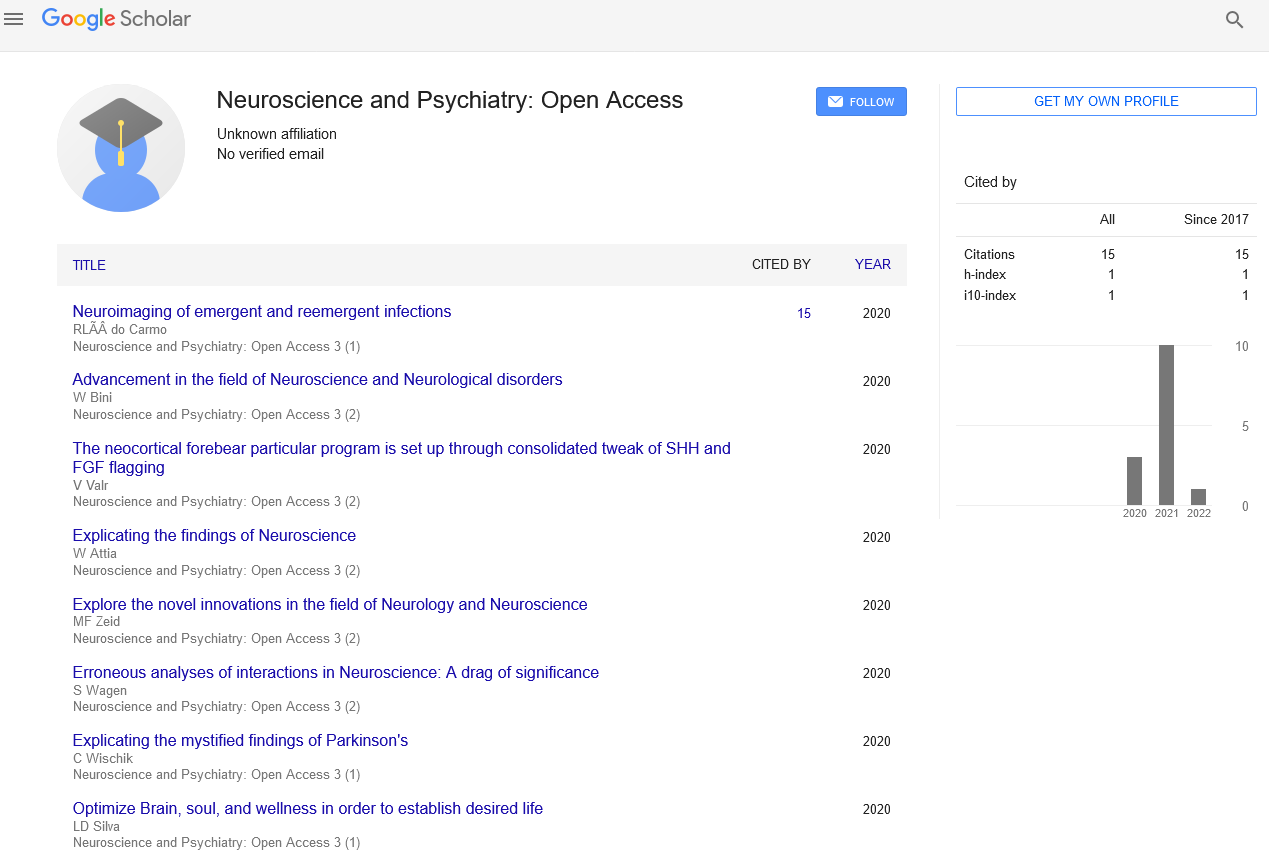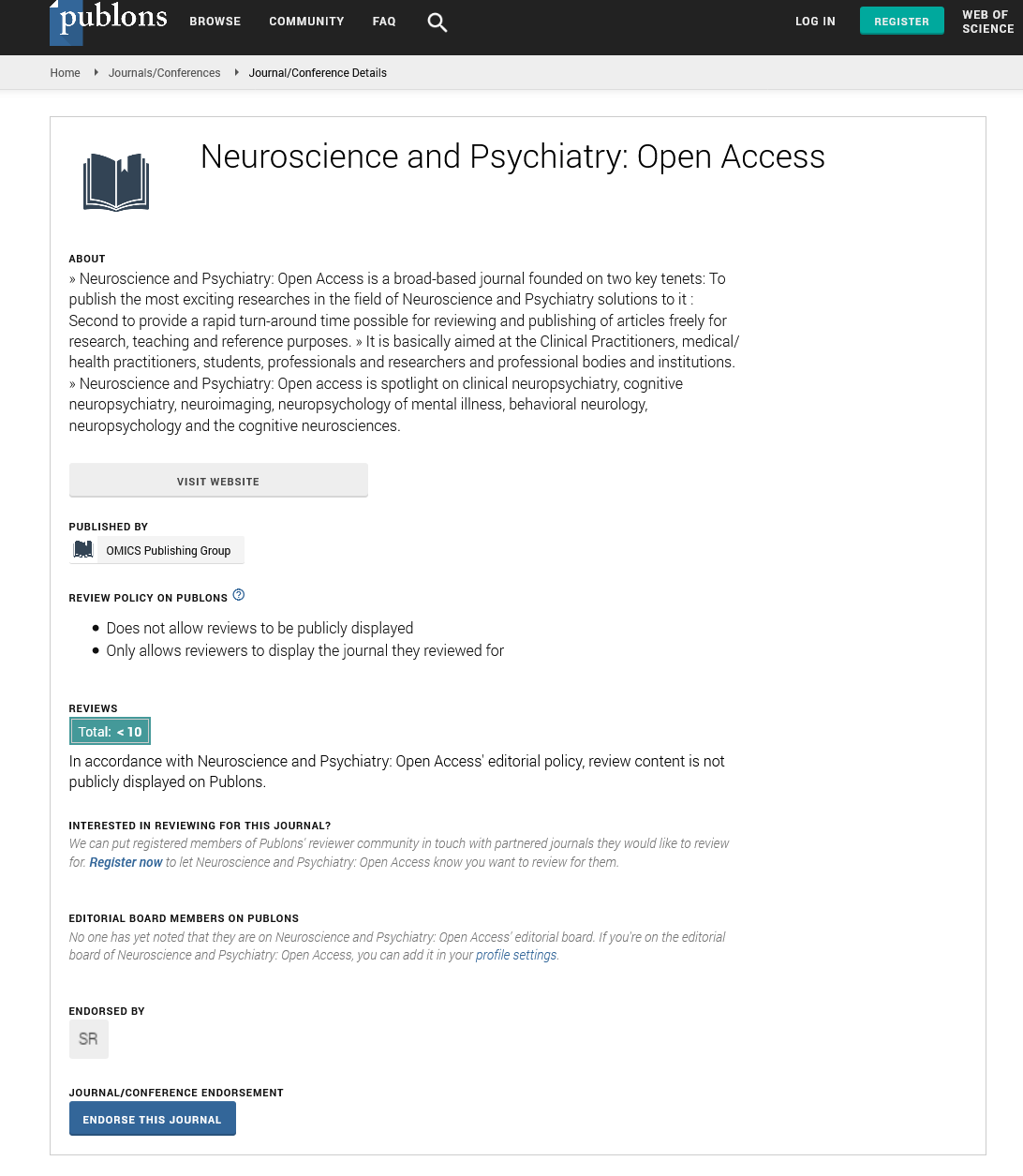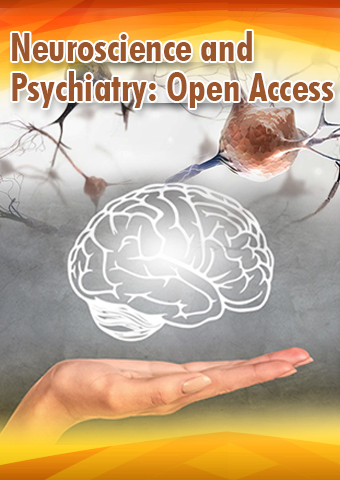Perspective - Neuroscience and Psychiatry: Open Access (2024) Volume 7, Issue 5
The Impact of Chronic Stress on Brain Function and Structure
- Corresponding Author:
- Kenneth Blum
Department of Brain and Cognitive Sciences,
Massachusetts Institute of Technology,
Massachusetts,
USA
E-mail: drd2g@gmail.com
Received: 10-09-2024, Manuscript No. NPOA-24-140618; Editor assigned: 13-09-2024, PreQC No. NPOA-24-140618 (PQ); Reviewed: 27-09-2024, QC No. NPOA-24- 140618; Revised: 09-10-2024, Manuscript No. NPOA-24-140618 (R); Published: 16-10-2024, DOI: 10.47532/npoa.2024.7(5).262-264
Introduction
Chronic stress is a pervasive issue in modern society, affecting individuals across all demographics. Prolonged exposure to stress can have detrimental effects on both physical and mental health, and its impact on the brain is particularly profound. Chronic stress can lead to structural and functional changes in the brain, influencing cognitive processes, emotional regulation, and overall mental well-being. This article explores the mechanisms through which chronic stress affects the brain, the specific brain regions involved, and the implications for health and behavior.
Description
The mechanisms of stress response
The body’s response to stress involves a complex interplay of systems, primarily the Hypothalamic Pituitary Adrenal (HPA) axis and the autonomic nervous system.
The HPA axis
The HPA axis is central to the stress response. When an individual perceives a stressor, the hypothalamus releases Corticotropin-Releasing Hormone (CRH), which stimulates the pituitary gland to secrete Adrenocorticotropic Hormone (ACTH). ACTH then prompts the adrenal glands to release cortisol, a glucocorticoid hormone that helps mobilize energy resources and modulate various bodily functions to cope with stress.
The autonomic nervous system
The autonomic nervous system, specifically the sympathetic branch, is also activated during stress. This leads to the release of adrenaline (epinephrine) and noradrenaline (norepinephrine), preparing the body for a “fight or flight” response by increasing heart rate, blood pressure, and energy availability.
Brain regions affected by chronic stress
Chronic stress can lead to significant changes in various brain regions, particularly those involved in emotion regulation, memory, and executive function.
The amygdala
The amygdala is crucial for processing emotions, especially fear and anxiety. Chronic stress can lead to hyperactivity in the amygdala, resulting in heightened emotional responses and increased anxiety. Structural changes, such as increased dendritic growth, have been observed in the amygdala of chronically stressed individuals, potentially making them more sensitive to stressors.
The prefrontal cortex
The Prefrontal Cortex (PFC) is responsible for higher-order cognitive functions, including decision-making, attention, and impulse control. Chronic stress can impair the function of the PFC, leading to difficulties in concentration, problem-solving, and emotional regulation. Structurally, chronic stress can cause a reduction in the volume of the PFC, with decreased dendritic branching and synaptic connectivity.
The hippocampus
The hippocampus is essential for learning and memory. Chronic stress has a particularly damaging effect on the hippocampus, leading to reduced neurogenesis (the formation of new neurons), dendritic atrophy, and decreased hippocampal volume. These changes can impair memory formation and retrieval and contribute to mood disorders such as depression.
The insula
The insula integrates emotional and bodily states, contributing to the subjective experience of stress. Chronic stress can alter insular function, leading to increased interoceptive sensitivity (heightened awareness of internal bodily states) and contributing to anxiety and stress-related disorders.
Neurotransmitter systems and chronic stress
Chronic stress can also disrupt various neurotransmitter systems, further affecting brain function and structure.
Serotonin
Serotonin is involved in mood regulation, anxiety, and stress responses. Chronic stress can lead to dysregulation of the serotonergic system, reducing serotonin levels and receptor sensitivity. This can contribute to mood disorders and impaired stress coping mechanisms.
Dopamine
Dopamine is critical for motivation, reward processing, and executive function. Chronic stress can alter dopaminergic signaling, leading to reduced motivation, anhedonia (loss of pleasure), and cognitive deficits. These changes are particularly relevant to the development of stress-related disorders such as depression and addiction.
Glutamate
Glutamate is the primary excitatory neurotransmitter in the brain, essential for synaptic plasticity and cognitive function. Chronic stress can lead to excessive glutamate release, resulting in excitotoxicity (damage caused by overactivation of receptors) and neuronal damage, particularly in the hippocampus and prefrontal cortex.
Epigenetic changes
Chronic stress can induce epigenetic changes, which alter gene expression without changing the underlying DNA sequence. These changes can have long-lasting effects on brain function and behavior.
DNA methylation
DNA methylation involves adding a methyl group to DNA, which can suppress gene expression. Chronic stress can lead to increased DNA methylation of genes involved in neuroplasticity and stress responses, resulting in reduced expression of these genes and impaired brain function.
Histone modification
Histones are proteins that help package DNA into a compact, organized structure. Modifications to histones, such as acetylation and methylation, can affect gene expression. Chronic stress can alter histone modifications, leading to changes in gene expression that impact brain function and structure.
The role of inflammation
Chronic stress can also trigger inflammation in the brain, contributing to neurodegenerative changes and mental health disorders.
Neuroinflammation
Chronic stress can activate the immune system, leading to the release of pro-inflammatory cytokines. These cytokines can cross the bloodbrain barrier and induce inflammation in the brain, affecting neuronal function and survival. Neuroinflammation has been linked to the development of depression, anxiety, and cognitive decline.
Microglial activation
Microglia are the brain’s resident immune cells, responsible for responding to injury and infection. Chronic stress can lead to microglial activation, resulting in the release of pro-inflammatory molecules and oxidative stress. This can damage neurons and disrupt neural circuits involved in mood regulation and cognition.
Implications for mental health
The structural and functional changes induced by chronic stress have significant implications for mental health.
Depression
Chronic stress is a major risk factor for depression. The reduction in hippocampal volume, impaired neurogenesis, and dysregulation of neurotransmitter systems can contribute to the development of depressive symptoms. Additionally, epigenetic changes and neuroinflammation further exacerbate these effects, making individuals more vulnerable to depression.
Anxiety disorders
Chronic stress can lead to hyperactivity in the amygdala and insula, contributing to increased anxiety and heightened stress sensitivity. The impaired function of the prefrontal cortex can reduce the ability to regulate these emotional responses, leading to persistent anxiety and the development of anxiety disorders.
Cognitive impairment
The impact of chronic stress on the hippocampus and prefrontal cortex can lead to cognitive deficits, including impaired memory, attention, and executive function. These changes can affect daily functioning and overall quality of life, particularly in individuals with chronic stress exposure.
Strategies for mitigating the effects of chronic stress
Understanding the impact of chronic stress on the brain highlights the importance of developing strategies to mitigate its effects and promote resilience.
Stress management techniques
Stress management techniques, such as mindfulness meditation, yoga, and relaxation exercises, can help reduce the physiological and psychological impact of stress. These practices can improve emotional regulation, reduce anxiety, and enhance overall well-being.
Physical exercise
Regular physical exercise has been shown to have numerous benefits for brain health, including promoting neurogenesis, reducing inflammation, and enhancing cognitive function. Exercise can also help alleviate symptoms of depression and anxiety by modulating neurotransmitter systems and stress responses.
Social support
Strong social support networks can buffer the effects of chronic stress and enhance resilience. Positive social interactions can reduce the perception of stress, provide emotional support, and promote healthy coping strategies.
Therapeutic interventions
Psychotherapy, such as Cognitive-Behavioral Therapy (CBT), can help individuals develop effective coping strategies and reframe negative thought patterns associated with stress. Pharmacological treatments, such as antidepressants and anxiolytics, may also be necessary for individuals with severe stress-related mental health disorders.
Conclusion
Chronic stress has a profound impact on brain function and structure, leading to significant changes in various brain regions and neurotransmitter systems. These changes can contribute to the development of mental health disorders, including depression, anxiety, and cognitive impairment. Understanding the neurobiological mechanisms underlying these effects is crucial for developing effective interventions and promoting resilience. By implementing stress management techniques, engaging in regular physical exercise, fostering social support, and seeking therapeutic interventions when necessary, individuals can mitigate the impact of chronic stress and enhance their mental wellbeing.


